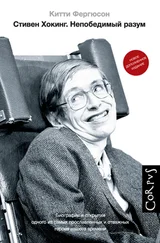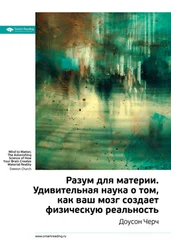Ikeda D. Faith into Action. Los Angeles: World Tribune Press, 1999. P. 108.
Locke E. et al. Goal Setting and Task Performance: 1969–1980 // Psychological Bulletin, 1981. Vol. 90. P. 125–152.
Newall N. et al. Regret in Later Life: Exploring Relationships Between Regret Frequency, Secondary Interpretive Control Beliefs, and Health in Older Individuals // The International Journal of Aging and Human Development, 2009. Vol. 68. P. 261–288.
Trottier K., Polivy J., Herman C. P. Effects of Exposure to Unrealistic Promises About Dieting: Are Unrealistic Expectations About Dieting Inspirational? // International Journal of Eating Disorders, 2005. Vol. 37. P. 142–149.
Trottier K., Polivy J., Herman C. P. Effects of Exposure to Unrealistic Promises About Dieting: Are Unrealistic Expectations About Dieting Inspirational? // International Journal of Eating Disorders, 2005. Vol. 37. P. 142–149.
Locke E. et al. Goal Setting and Task Performance: 1969–1980 // Psychological Bulletin, 1981. Vol. 90. P. 125–152.
Barnes R., Tantleff-Dunn S. Food for Thought: Examining the Relationship Between Food Thought Suppression and Weight-Related Outcomes // Eating Behaviors, 2010. Vol. 11. P. 175–179.
Nordgren L., Chou E. The Push and Pull of Temptation: The Bidirectional Influence of Temptation on Self-Control // Psychological Science, 2011. P. 20. Vol. 1–5.
Baumeister R. et al. Ego Depletion: Is the Active Self a Limited Resource? // Journal of Personality and Social Psychology, 1998. Vol. 74. P. 1252–1265.
Gailliot M. Self-Control Relies on Glucose as a Limited Energy Source: Willpower Is More Than a Metaphor // Journal of Personality and Social Psychology, 2007. Vol. 92. P. 325–336.
Tice D. et al. Restoring the Self: Positive Affect Helps Improve Self-Regulation Following Ego Depletion // Journal of Experimental Social Psychology, 2007. Vol. 43. P. 379–384; Muraven M., Slessareva E. Mechanisms of Self-Control Failure: Motivation and Limited Resources // Personality and Social Psychology Bulletin, 2003. Vol. 29. P. 894–906.
Kurzban R. Does the Brain Consume Additional Glucose During Self-Control Tasks? // Evolutionary Psychology, 2011. Vol. 2. P. 244–259.
Mischel W., Ebbesen E. Attention in Delay of Gratification // Journal of Personality and Social Psychology, 1970. Vol. 16. P. 329–337.
Mischel W., Baker N. Cognitive Appraisals and Transformations in Notes 257 Delay Behavior // Journal of Personality and Social Psychology, 1975. Vol. 31. P. 254–261.
Vohs K. et al. Making Choices Impairs Subsequent Self-Control: a Limited-Resource Account of Decision Making, Self-Regulation, and Active Initiative // Journal of Personality and Social Psychology, 2008. Vol. 94. P. 883–898.
Дахигг Ч. Сила привычки. Почему мы живем и работаем именно так, а не иначе. М.: Карьера Пресс, 2012.
Lally P. et al. How Are Habits Formed: Modelling Habit Formation in the Real World // European Journal of Social Psychology, 2010. Vol. 40. P. 998–1009.
Lally P. et al. How Are Habits Formed: Modelling Habit Formation in the Real World // European Journal of Social Psychology, 2010. Vol. 40. P. 998–1009.
Achor S. The Happiness Advantage. New York: Crown Business, 2010. P. 154–156.
Wood W., Tam L., Witt M. Changing Circumstances, Disrupting Habits // Journal of Personality and Social Psychology, 2005. Vol. 88. P. 918–933.
Mischel W., Ebbesen E. Attention in Delay of Gratification // Journal of Personality and Social Psychology, 1970. Vol. 16. P. 329–337.
Kirby K. et al. Situations Occasioning Cocaine Use and Cocaine Abstinence Strategies // Addiction 1995. Vol. 90. P. 1241–1252.
Кинг С. Корпорация «Бросайте курить» // Корпорация «Бросайте курить»: сборник. М.: АСТ, 2000.
Daishonin N. Reply to Kyo’o // The Writings of Nichiren Daishonin, Vol. 1. Japan: SokaGakkai, 1999. P. 412.
Pelchat M. Food Addiction in Humans // The Journal of Nutrition, 2009. Vol. 139. P. 620–622.
Oudenhove L. et al. Fatty Acid-Induced Gut-Brain Signaling Attenuates Neural and Behavioral Effects of Sad Emotion in Humans // Journal of Clinical Investigation, 2011. Vol. 121. P. 3094–3099.
Fishbach A., Eyal T., Finklestein S. How Positive and Negative Feedback Motivate Goal Pursuit // Social and Personality Psychology Compass, 2010. Vol. 4. P. 517–530.
Punamaki R.-L. Can Ideological Commitment Protect Children’s Psychosocial Well-Being in Situations of Political Violence? // Child Development, 1996. Vol. 67. P. 55–69.
Daishonin N. The Three Obstacles and the Four Devils // The Writings of Nichiren Daishonin, Vol. 1. Japan: Soka Gakkai, 1999. P. 637.
Kraig R. et al. TNF-alpha and Microglial Hormetic Involvement in Neurological Health and Migraine // Dose-Response, 2010. Vol. 8. P. 389–413.
Arnold J. et al. Exploring Parental Grief: Combing Quantitative and Qualitative Measures // Archives of Psychiatric Nursing, 2005. Vol. 19. P. 245–255.
Франкл В. Человек в поисках смысла. М.: Прогресс, 1990.
McDonald M. The Nature of Epiphanic Experience // Journal of Humanistic Psychology, 2008. Vol. 48. P. 89–115.
Hirsch J. et al. Optimistic Explanatory Style as a Moderator of the Association Between Negative Life Events and Suicidal Ideation // Crisis, 2009. Vol. 30. P. 48–53.
Бах Р. Иллюзии. Киев: София, 2008.
Ho S. et al. Relationships Between Explanatory Styles, Posttraumatic Growth and Posttraumatic Stress Disorder Symptoms among Chinese Breast Cancer Patients // Psychology and Health, 2011. Vol. 26. P. 269–285.
Hirsch J. et al. Optimistic Explanatory Style as a Moderator of the Association Between Negative Life Events and Suicidal Ideation // Crisis, 2009. Vol. 30. P. 48–53.
Seligman M. et al. Explanatory Style as a Mechanism of Disappointing Athletic Performance // Psychological Science, 1990. Vol. 1. P. 143–146.
Gordon R. Attributional Style and Athletic Performance: Strategic Optimism and Defensive Pessimism // Psychology of Sport and Exercise, 2008. Vol. 9. P. 336–350.
Gordon R. Attributional Style and Athletic Performance: Strategic Optimism and Defensive Pessimism // Psychology of Sport and Exercise, 2008. Vol. 9. P. 336–350.
Moore M., Fresco D. The Relationship of Explanatory Flexibility to Explanatory Style // Behavior Therapy, 2007. Vol. 38. P. 325–332.
Читать дальше
Конец ознакомительного отрывка
Купить книгу





![Рейчел Херц - Почему мы едим то, что едим [Наука о том, как наш мозг диктует нам, что есть]](/books/390411/rejchel-herc-pochemu-my-edim-to-chto-edim-nauka-o-t-thumb.webp)






